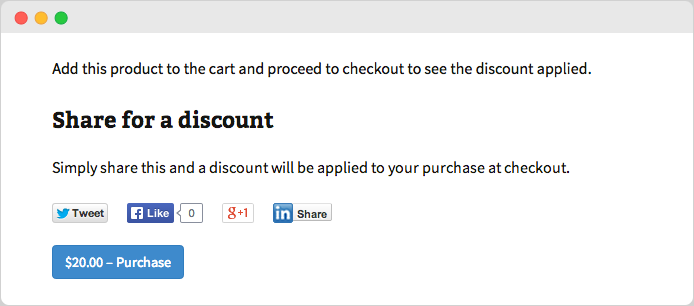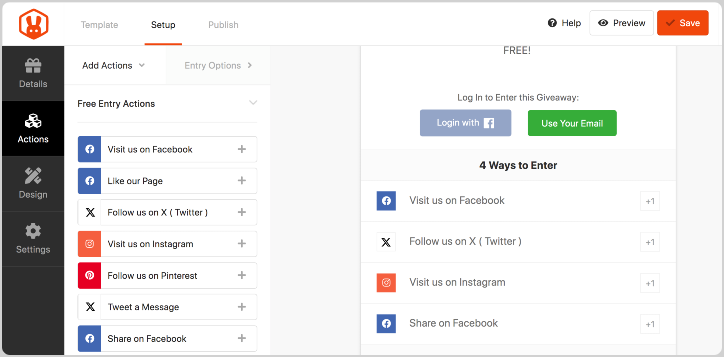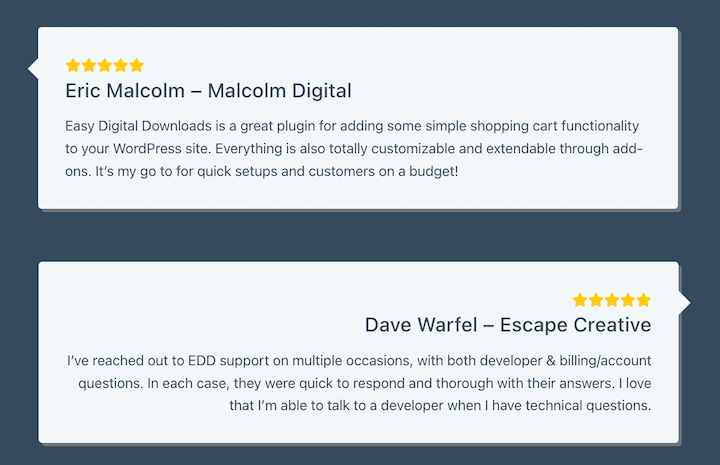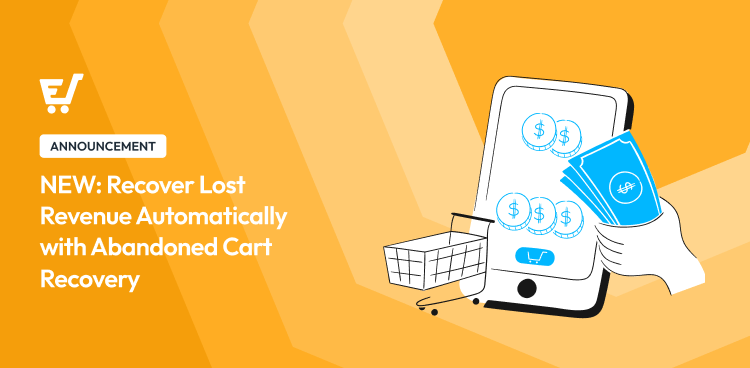Do you want to use social proof for eCommerce success?
When it comes to driving conversions on your online store, trust is paramount. With limitless information and countless options at shoppers’ fingertips, making informed buying decisions is easier than ever.
Naturally, consumers want reassurance before clicking the ‘purchase’ button. That assurance can often come in the form of social proof.
🔎 In this article, I’ll cover:
- What Is Social Proof?
- Importance of Social Proof for eCommerce
- How to Use Social Proof for eCommerce
- 1. Allow & Encourage Customer Reviews
- 2. Showcase Case Studies & Success Stories
- 3. Establish Your Social Media Presence
- 4. Display Trust Signals Strategically
- 5. Leverage User-Generated Content
- 6. Consider Affiliate & Influencer Marketing
- 7. Diversify Placements of Social Proof
- 8. Track & Analyze Your Results
- FAQs on Social Proof for eCommerce
What Is Social Proof?
Social proof refers to the psychological phenomenon where people conform to the actions of others they perceive as similar to themselves or industry experts.
In the context of eCommerce, this digital word-of-mouth marketing strategy leverages the positive experiences of existing customers to convince new ones to take the plunge.
Social proof for eCommerce taps into consumers’ inherent desire to follow the crowd. When we see others endorsing a product or service, it subconsciously validates its value and reduces our perceived risk.
Some popular examples of social proof include positive product reviews, customer testimonials, case studies, and even social media mentions.
Importance of Social Proof for eCommerce
Put simply, the importance of social proof for eCommerce businesses is that it builds trust and reduces friction in the buying journey. Consider the research data that revealed when it comes to consumers shopping online:
- Over 99.9% read reviews
- Nearly 80% purposely seek out sites with product reviews
- 86% won’t purchase products without first reading online reviews
When it comes to selling digital products, social proof works because it provides customers with confidence that your intangible product is of high quality. It’s convenient because it provides answers to questions they were already asking themselves.
Using social proof for eCommerce can lead to:
- Increased sales and conversions. Social proof removes buying hesitations, leading to more confident purchases and a boost in your bottom line.
- Enhanced brand credibility. Positive social proof positions your brand as trustworthy and reliable, attracting new customers and retaining existing ones.
- Improved customer acquisition. Social proof acts as a powerful marketing tool, attracting organic traffic and encouraging positive word-of-mouth marketing.
- Reduced customer support costs. Satisfied customers are less likely to require support due to purchase doubts.
How to Use Social Proof for eCommerce
Social proof can give your digital product store the momentum it needs to take off, but how can you harness its power? Below are some key tips and best practices for implementing and utilizing social proof for eCommerce sites.
1. Allow & Encourage Customer Reviews
Genuine customer reviews and star ratings on product pages are a cornerstone of social proof.
Highlight positive reviews prominently on your eCommerce website, such as your homepage, product pages, and other key areas.

If possible, collect reviews from industry publications or respected bloggers to add an extra layer of credibility to your social proof arsenal. However, any authentic reviews from real customers can help.
If you’re just starting, encourage early customers and website visitors to leave reviews by offering incentives like loyalty points or discounts for leaving reviews.
The EDD Reviews extension makes this incredibly easy:

You can collect product reviews and display them on your product pages, making it simple for users to share their feedback. There are also features for requesting reviews in post-purchase emails.
Remember to respond to both positive and negative reviews promptly and professionally. Addressing negative feedback constructively shows you care about customer satisfaction.
2. Showcase Case Studies & Success Stories
Another form of social proof for digital products is success stories and case studies that communicate how your products have helped customers achieve their goals.
While influencer or celebrity endorsements would certainly be ideal, don’t underestimate how far recommendations from regular peers and online shoppers can go. The goal is to ensure your audience knows the words are coming from real people.
Compile and share engaging case studies on happy customers who’ve had positive experiences with your product. To maximize usability and effectiveness across platforms, highlight key quotes and data, and include photos and names for added authenticity.
3. Establish Your Social Media Presence
Consistent activity across relevant social platforms (LinkedIn, Facebook, Twitter, etc.) organically builds social proof. Be sure to maintain an active presence, which could include sharing social media posts and updates, showcasing your products, participating in trends, etc.
Look for opportunities to engage and interact with your audience to foster trust. Respond promptly and professionally to comments and messages. Authenticity builds a relatable brand.
With a plugin like Smash Balloon, you can also integrate and display social media feeds on your eCommerce store website:

Easy Digital Downloads also has a Social Discounts addon that you can use to reward users for sharing your products with their own social media followers:

🔎 Learn more ways to use social media to drive online sales.
4. Display Trust Signals Strategically
Trust signals, badges, and activity notifications are different types of social proof that I always recommend online sellers display on their eCommerce sites.
Trust signals help visually verify your legitimacy, while real-time customer notifications show others actively engaging, building the impression of a popular and trustworthy business. This combination creates a powerful social proof loop, increasing digital trust and encouraging new customers to join the crowd.
Display trust badges from reputable review platforms like Trustpilot, McAfee, Norton, or security certificates (e.g., SSL) to instill confidence in prospective customers.

TrustPulse is the ideal plugin for displaying customer activity updates:

It lets you display real-time notifications of recent purchases, customer reviews, and social media mentions. These create a sense of urgency, fear of missing out (FOMO), and social validation.
5. Leverage User-Generated Content
User-generated content (UGC) is an essential aspect of social proof. If you’re unfamiliar, UGC is content (photos, videos, reviews) created by customers showcasing products in real life.
Unlike polished marketing materials, UGC feels genuine and relatable, influencing purchase decisions.
Showcase customer photos and videos using your products on your website and social media channels.
In addition to enabling product reviews and integrating social media feeds across your site, you can encourage UGC by hosting an online giveaway or contest:

This can significantly boost engagement and expand your reach. Bonus points if one of the requirements for entering is sharing it on their social channels, signing up for a newsletter, etc.
6. Consider Affiliate & Influencer Marketing
As with testimonials from industry experts, positive endorsements from relevant influencers or affiliates in your eCommerce niche can provide social proof for your brand.
Sometimes the best referrals come from product placement and content showing your product in use.
Social media platforms like YouTube, Instagram, and TikTok are prime spots for this type of social proof. For example, it could be a tutorial video of a tech guru using your plugin or software, a graphic design artist featuring your template or font in an Instagram post, etc.
Another option is starting an affiliate program to incentivize satisfied customers to promote your products. This can be particularly motivating for creators because they earn a commission for each successful referral they send your way.
7. Diversify Placements of Social Proof
Don’t limit social proof marketing efforts to your product pages and website. Integrate testimonials, case studies, and other types of social media proof across your marketing and communication channels to maximize impact.
Include customer reviews and social proof elements in your email marketing campaigns to nurture leads and boost conversion rates:

Keep in mind that Search Engine Optimization (SEO) and digital marketing can indirectly help strengthen and boost your social proof efforts by increasing site traffic.
Strong SEO gets your store ranking higher in search results, leading more potential customers to see positive reviews, ratings, and UGC that build trust and encourage conversions. Run content marketing and social media campaigns to naturally promote these reviews and encourage customer interaction, further amplifying the power of social proof.
8. Track & Analyze Your Results
As with any type of digital marketing initiative, be sure to monitor the impact of your social proof efforts. Use website analytics tools to see which types of social proof resonate most with your audience. This data will help you refine your strategy for continued success.
Remember: Social proof is an ongoing process. Continuously solicit reviews, encourage user-generated content, and stay active on social media to build a robust and dynamic social proof ecosystem for your WordPress EDD store.
FAQs on Social Proof for eCommerce
Let’s wrap up with some frequently asked questions about eCommerce and social proof!
What does social proof in marketing mean?
Social proof in marketing refers to the psychological phenomenon where people are influenced by the actions of others. It’s leveraging the idea that if other people trust something, it must be trustworthy.
Why is social proof so important for online sellers?
Marketers use social proof to build trust and credibility with potential customers, ultimately influencing their purchasing decisions. Effective use of social proof can translate into higher conversion rates.
How much social proof for eCommerce is too much?
While social proof is powerful, it’s important to maintain a clean and balanced website design. Avoid overwhelming visitors with excessive social proof elements. Prioritize high-quality, relevant social proof that aligns with your target audience.
Focus on gathering genuine customer feedback and showcasing authentic user experiences.
Fuel Social Proof for eCommerce With EDD
By implementing these tips and embracing the power of social proof for eCommerce, you can build credibility, trust, and customer loyalty. With eCommerce solutions like Easy Digital Downloads, you can harness the influence of social proof to drive sales and propel your business to new heights.
Don’t have Easy Digital Downloads yet? Grab a pass and get started in no time:
Looking for more ways to improve your eCommerce site? Check out 8 Digital Product Store Features Customers Love.
📣 P.S. Be sure to subscribe to our newsletter and follow us on Facebook or Twitter for more WordPress resources!







